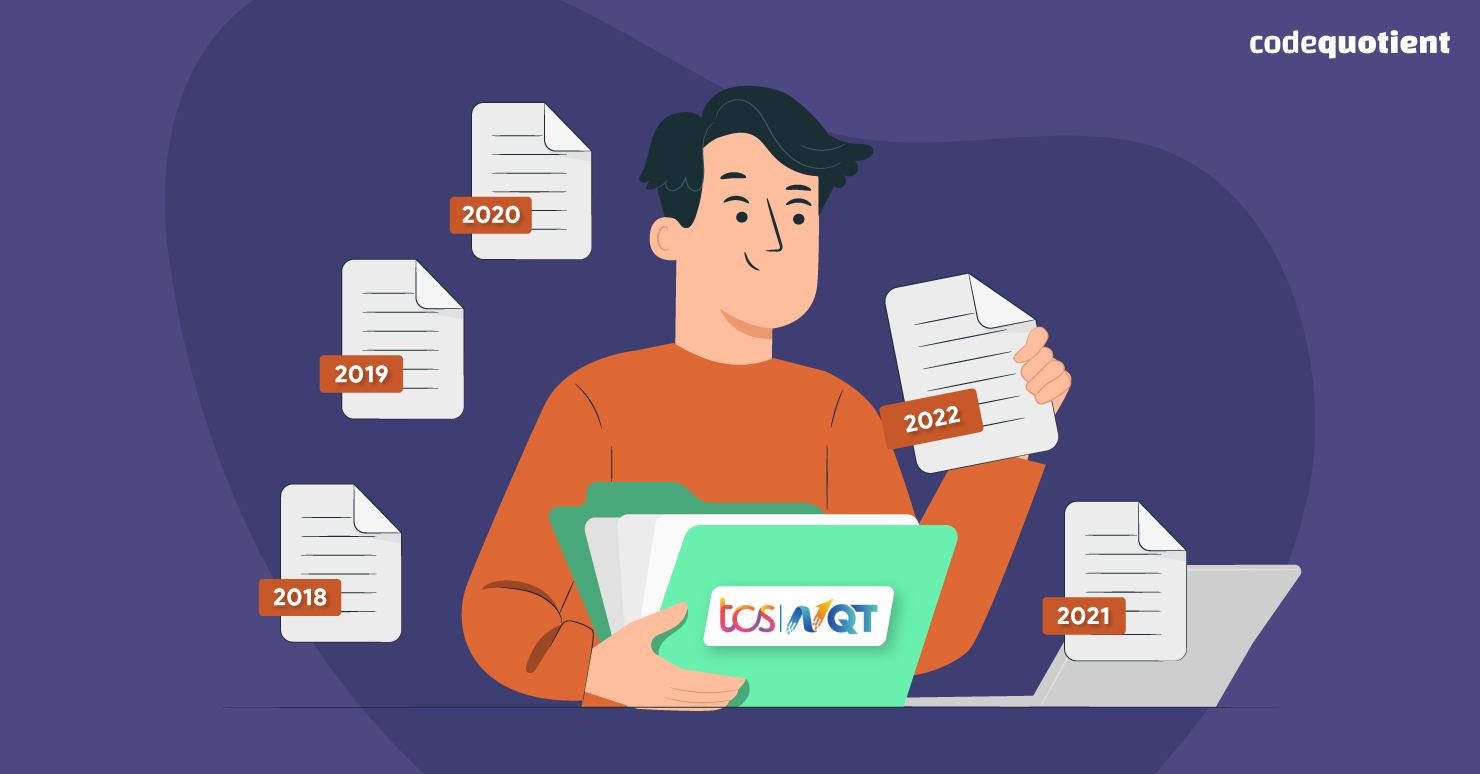The Tata Consultancy Services National Qualifier Test (TCS NQT) is a gateway for students or job seekers to get hired by TCS, one of the leading IT companies in India. This popular exam’s intense competition makes it crucial for candidates to prepare well to ace it. To crack the TCS NQT 2024 exam, you must be well-prepared and thoroughly understand the exam pattern. One of the most effective tools for preparing for the exam is TCS NQT’s previous year’s question papers.
This article will guide you on using TCS NQT’s previous year’s question papers to ace the exam.
Understanding the TCS NQT Exam Pattern
The TCS NQT Exam is an online assessment designed to evaluate the competency of job aspirants. It lasts 90 minutes and consists of multiple-choice questions (MCQs) types of questions.
The TCS NQT Exam pattern consists of two stages. Stage 1 consists of 80 questions from various sections, and candidates must score at least 70% to qualify for Stage 2. Stage 2 consists of advanced questions from programming and coding, and candidates must score at least 40% to qualify for the interview round.
The exam assesses candidates in various sections, such as quantitative aptitude, verbal ability, programming logic, and coding. The syllabus of the TCS NQT exam is vast and includes various topics from different sections. The questions are designed to test candidates’ problem-solving skills and critical-thinking abilities.
Is TCS NQT Difficult?
The TCS NQT exam is moderate to difficult regarding difficulty level, with the quantitative aptitude section being the toughest.
Candidates need to practise a lot to excel in this section. Preparing through the TCS NQT previous year question papers can be effective. The programming and coding section in Stage 2 is more advanced and requires in-depth knowledge of programming concepts.
Negative marking is applicable for incorrect answers, with one-third of the marks allotted for a question being deducted for each wrong answer.
Importance of TCS NQT Previous Year Question Papers

Here’s how TCS NQT’s previous year’s question papers can be an excellent tool to crack the exam:
1. Familiarity with the exam pattern
TCS NQT previous year question papers can help you understand the exam pattern, marking scheme, and frequently asked questions.
2. Time management skills
Solving previous year’s question papers can help you improve your time management skills and reduce the time to solve each question.
3. Practice makes perfect
The more previous year question papers you solve, the more practice you get, and the more confident you become in tackling the actual exam.
How to Use TCS NQT Previous Year Question Papers to Ace the Exam?
Follow this step-by-step guide to bullet-proof your preparation:
1. Start by analysing the syllabus and exam pattern
Before starting with the previous year’s papers, thoroughly understand the TCS NQT curriculum and exam pattern. This will help you identify the important topics and give you an idea of the questions asked in the exam.
2. Solve the TCS NQT previous year question papers under exam-like conditions
Try to solve the TCS NQT previous year question papers under timed conditions. This will help you handle the exam pressure and improve your time management skills and logical ability. You may also try mock tests to further your goals.
3. Identify your weak areas
While solving the previous year’s papers, identify the topics in which you are weak. Focus more on these areas and practice more questions related to these topics.
4. Don’t just memorise the answers
While solving the TCS NQT previous year question papers, don’t just focus on memorising the answers. Try to understand the concepts behind each question and learn the techniques to solve similar questions.
5. Use the papers to create a study plan
Analyse your performance in the previous year’s papers and use them to create a study plan. Focus more on the topics you found challenging and allocate more time to practise questions related to those topics.
6. Keep track of your progress
Record your progress while solving the TCS NQT previous year question papers. This will help you to identify the areas where you are improving and the areas where you still need to work on.
7. Improving Speed and Accuracy
Candidates can improve their problem-solving speed and accuracy with regular practice of the previous year’s question papers. This helps them attempt more questions and score higher on the exam.
Final Note
The TCS NQT exam is a golden opportunity no aspiring candidate would want to miss. Every candidate wants to perform their best in the exam, and TCS NQT Previous Year Question Papers can definitely help in diverse ways.
However, with proper guidance, it becomes way easier.
Learning and career platform CodeQuotient‘s personalised mentorship and guidance programs can help you stand out. For instance, the Bachelor of Computer Application + UG Program in Software Engineering after the 12th class can help you gain relevant skill sets, up to 2 years of experience, and a UGC-recognised BCA degree with a certificate in software engineering.
Our hiring partners offer an online coding internship of up to 1.5 years that hones your coding skills and prepares you for aptitude tests and interviews. You can develop an impressive portfolio and gain a project-based learning experience for maximum impact during selection.
Apply now to supercharge your preparation for the TCS NQT 2024!




